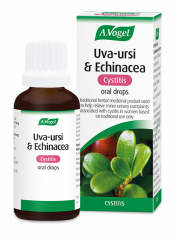An introduction to pelvic pain and cystitis
The pelvic region is the lowest band of your abdomen, just below your tummy button, containing reproductive organs, the bowel and bladder.
Depending on the cause, pain in this region can be felt as sharp stabbing pain, or more of a general ache. If cystitis is the root cause, pelvic pain is often described as achy or as intense pressure in the area, perhaps spreading to your back. Often the pain worsens if the bladder is full.
Why does cystitis cause pelvic pain?
Cystitis is a bacterial infection of the bladder. Often the infection is relatively mild and the body can fight it off within a week. However, sometimes the infection can be more severe and the bladder lining can become inflamed, resulting in pelvic pain or pressure.
For this reason, this symptom should be checked with a doctor to prevent any long term damage to the bladder.
In addition, pelvic pain can have many causes, ranging from cysts and fibroids to appendicitis and hernias, so ensuring that you understand the root cause is important to enable you to get the appropriate treatment.
Self-help, lifestyle and diet for pelvic pain
Once you have a diagnosis of cystitis from your doctor, there are several techniques you can try at home to ease your discomfort.
If you notice that your pain worsens when your bladder is full, try to empty your bladder when you feel the urge to go, as this will prevent a build-up of urine in the bladder. Make sure that you drink enough water too, to help flush the infection out of your system.
Certain types of food can irritate the bladder more than others and so, if you notice increased pain after certain food types, take steps to eliminate these from your diet. This may include citrus fruit, refined sugar or spicy foods. Triggers can vary from person to person, so keeping a food diary with symptoms can help you to identify which foods aggravate or improve your symptoms.
For more tips, read my blog post on diet and cystitis.
Are there herbal remedies to help me?
It is important to get symptoms of pelvic pain checked by a doctor before taking any herbal remedies to understand fully the root of the problem. If the doctor gives a diagnosis of a bladder infection or cystitis, then there are herbal remedies you can try to ease your symptoms.
Uva-ursi is a herb which passes through the body until it reaches the bladder, then changes its chemical structure and disinfects the bladder, helping to clear it of infection. Fresh extracts of this herb are available in licensed herbal remedy A.Vogel Uva-ursi and Echinacea oral drops.
This can be taken alongside cranberry, which has a long history of traditional use in preventing cystitis. Cranberry prevents bacteria from colonising and breeding on the wall of the bladder. This makes it difficult for an infection to occur, so cranberry is often used as a preventative measure against bladder infections too.
Read our blog for more on what the research says when it comes to Cranberry Juice for cystitis.
What about conventional medicines?
Pelvic pain should be checked by a doctor. It is likely that a doctor will prescribe antibiotics to help clear the infection. For people who are prone to recurring infections, the doctor may suggest a continual low dose of antibiotics, or give a prescription for stand-by antibiotics in the event of a recurring infection.
A doctor may also suggest taking painkillers to reduce discomfort in the pelvic region. These are usually available over-the-counter, such as paracetamol or ibuprofen.









